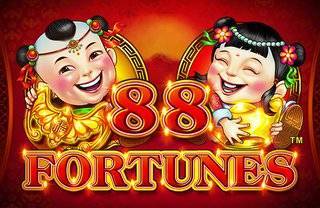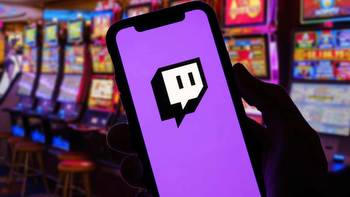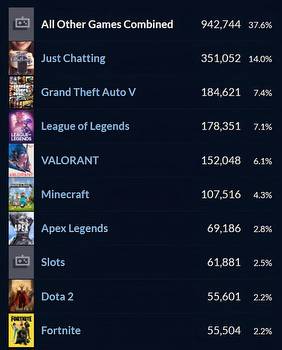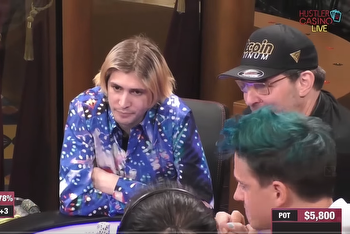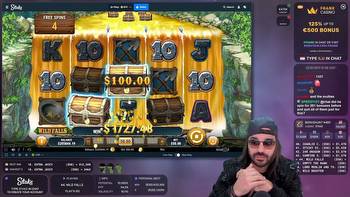On Twitch, Online Casino Streamers Promote Gambling to Their Audience While Taking on Little Risk

With $17.69 left and every bet costing him $4.20, Muhaj would need a streak of luck to make up the more than $1500 he had already lost in the night. Having selected autoplay, Muhaj and the hundreds of people tuning into his Twitch stream watch as The Dog House slots program takes in another bet, and then spits out nothing in return. Colorful, cartoon dogs spin into place as another pull proves fruitless, putting Mujher at a balance of $9.29. Another two pulls bring his balance below the $4.20 bet threshold he set, stopping autoplay and prompting Muhaj to either add more funds to his Roobet account, or lower his bet level. He decides to leave the slots entirely, moving to the online casino’s roulette table for a break, and does something no one watching his stream is in a position to do.
He asks the Roobet sponsorship manager, Howie, for another $500 credit on his account.
“deer howy, it me , muhjer,” the Twitch channel’s Nightbot automoderator writes. “it curenly 5 am n it has com 2 my attenshen dat am achaly has no mor mony left in da balense, (dam). Coul plz ged 1 mor fill plz sir capten sir? Btw, did am menshen how grate u look on ur boat? Thnxs howy, u da bes – ur fren, mujher.”
Mujher’s audience and the 21,000 average daily viewers of the slots category on Twitch cannot ask for their money back from online casinos, but the scores of streamers that log in to these virtual parlors often play by a different set of rules. Playing for hours each day, the slots streamers have launched the category into being the 23rd most popular on the videogame streaming platform. While there are some streamers who actually use their own money, many of the larger channels have affiliate deals, are a part of streaming companies that cover their tab, or use a combination of the two to make up for their losses and come out on top.
The biggest player in the slots category is Roshtein, a Swedish streamer who sports a large black fedora and similarly colored outfit during his streams and averages nearly 12,000 viewers per day. Roshtein’s daily streams play a large part in the overall ranking of the slots category. After a brief correspondence, Roshtein did not respond to requests for comment.
Each day he streams, Roshtein deposits thousands of Euros into an online casino, showing off and getting clips of his big wins. Meanwhile, an overlay on his stream along with 73 banners in his channel’s description tell viewers to use his affiliate promo code across a swath of online casinos for various bonuses. Some of these casinos, like Boss Casino, share the revenue they earn off referred patrons with their affiliates directly, with commission rates of up to 50%.
“A lot of what you see,” said Keith Whyte, Executive Director at the National Problem Gambling Helpline, “in those Twitch streams are people that are essentially affiliate marketers, they’re getting paid commission.”
Some streamers, like Muhaj, have no problem discussing with their audience that they are receiving some form of compensation for their play. Muhaj streams on the Xposed Twitch channel, where viewers can type ”!howie” to get an overview of the deal. In the Xposed channel’s case, Roobet gives the streamers a select amount of money which they have to spend. After spending the initial money, the streamer then earns 25% of their winnings and 5% are distributed to stream viewers who have been following for at least six months.
The !howie command does not mention the full extent of the Xposed channel’s affiliate compensation. Roobet has streamers a commission off every bet from their referrals, win or lose. Roobet’s website no longer lists the commission deal. The Xposed channel’s main streamer, Cody, confirmed over email that the channel does receive such commissions.
Cody said that referrals were not important to him when asked why the commission information was not available in the !howie command. However, he did write that it is “something I share with the stream quite often live.” Roobet and Muhaj did not respond to requests for comment.
Another Twitch channel, ClassyBeef, averages over 2,000 viewers in a stream. Their Twitch channel’s description says that they are, “a casino and slots streaming channel, and the most positive community on Twitch,” and goes on to list the seven members of the stream. The description does not mention that ClassyBeef is an “ambitious iGaming marketing company” as their website does. After request, ClassyBeef did not disclose any of their marketing clients.
Other popular Twitch streamers in the slots category are more closely tied to these online casinos. The streamer Daskelelele is part of the website CasinoGrounds.com, which describes itself as a friendly casino streaming community. CasinoGrounds.com has been invested in in by LeoVegas, a popular online casino.
In the past, Twitch has taken direct action against streamers for being in connection to gambling operations they presented on stream. In 2016, James “PhantomL0rd” Varga had his Twitch channel taken down after Skype logs revealed he owned a stake in a Counter-Strike: Global Offensive weapon skin gambling site. While PhantomL0rd was also accused of potentially rigging bets in his favor, there are no such accusations of rigged bets against any casino streamers mentioned above.
However, they may be in violation of the Federal Trade Commission’s endorsement guidelines. The FTC says on their website that “if there’s a connection between an endorser and the marketer that consumers would not expect and it would affect how consumers evaluate the endorsement, that connection should be disclosed.” While some streamers make it a point to mention their affiliation with online casinos during streams, none appear to abide by the FTC’s full disclosure guidelines which requires clear and conspicuous disclosures for ads in plain view that could potentially be deceptive.
More close to the actual streamers than the FTC, Twitch itself has not expressed an interest in regulating these streamers. “There’s a lot of debates around kind of what’s acceptable content on Twitch and what’s not,” said Dr. Mark R Johnson, lecturer in digital cultures at the University of Sydney. “But overall, Twitch tends to be stricter in its moderation of stream of behavior than content.” Dr. Johnson pointed to the platform moderating potentially sexual content or behavior as an example of their focus.
In his paper “Gambling Engagement Mechanisms in Twitch Live Streaming,” Dr. Johnson argues that extensions used by streamers on the platform utilize gambling themes to keep audiences engaged. While he notes these gamblified elements do not fit the legal definition of gambling due, in part, to the absence of monetary rewards, he says in his paper that Twitch itself has pursued similar “gamification and gamblification” of its monetization..
One such monetization tool Twitch offers to streamers is the Hype Train. Streamers can set when a Hype Train will occur, and during the event viewers must collectively give the streamer enough donations to reach the threshold the streamer themself set. If the audience collectively donates enough bits, subscriptions or sub tokens—all of which can be traded by the Streamer for real life currency—then they earn virtual emote rewards that they can use in the stream’s chat.
“Gamblified techniques,” Dr. Johnson says, “whatever one thinks of them, ethically, they are very, very effective techniques for getting and then keeping people engaged.”
Slots streamers, like other more traditional Twitch streamers, make use of extensions and techniques to keep their audience engaged. Roshtein’s channel hosts random drops, in which viewers can type specific phrases to earn channel rewards, and Xposed recently hosted a ”$2000 PC” giveaway on their channel.
Many of the slots streamers also make use of Twitch’s clipping function to record their biggest wins for the day. One clip from a Roshtein stream that has been viewed over 27,000 times shows the streamer making over $100,000 from a $10 bet.
Other streamers will compile their day’s wins into videos and upload them to their YouTube channel. Rarely, if ever, do these clips or videos showcase any losses on the streamer’s part. Whyte says that this focus on wins over losses can be potentially misleading to viewers.
“People with gambling problems, only tend to recall the wins, they discount or don’t remember their losses,” said Whyte. “Promoting a false or elevated sense of winning can be especially harmful to vulnerable people or the youth or people with gambling problems.”
While it is unclear how many youths watch slots streams, there is little barrier of entry for the group. Currently, users must be at least 13 years old to register for a Twitch account. At that point, every stream—including streams identifying themselves with mature content like slots—are available to view. For viewers without an account, a single button press confirming a viewer is old enough to view the content suffices. Twitch did not respond to a request for comment.
Despite pulling thousands of viewers each day and being the 23rd most popular category on the platform, Twitch has not assigned a placard to the slots category. While other popular categories, and even other forms of gambling like poker, have received acknowledgement by Twitch, the slots category has yet to be considered.
“I think this is one of those cases of technology advancing faster than legal and cultural norms.” Dr. Johnson said. “And that I just don’t think many people within the gambling space or the gambling regulations space or the gambling charity space are really aware that people are broadcasting their real money gambling live. So there’s no pressure from anyone really to think about, should this be allowed? Should it be regulated? How do we shape this?”
Nicolas Perez is an editorial intern at Paste and opinion co-editor for New University. He’s rambling on Twitter @Nic_Perez__.







